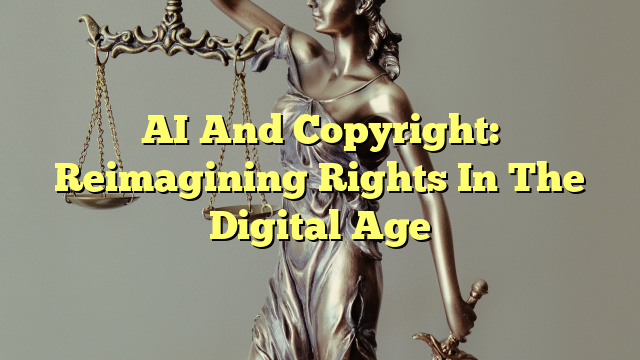AI and Copyright: Reimagining Rights in the Digital Age
Table of Contents
Copyright Issues in the Digital Age
The digital age has brought about numerous copyright challenges. With the rise of the internet and advancements in technology, the ease of copying and distributing creative works has increased exponentially. This has led to concerns about protecting intellectual property and ensuring fair compensation for creators.
One major issue is the unauthorized sharing of copyrighted material through file-sharing platforms and social media. This has made it difficult for creators to control the distribution of their work and has led to significant revenue losses in industries such as music and film.
Additionally, the digital age has blurred the lines between original content and derivative works. With the ability to remix and manipulate existing works, it can be challenging to determine what constitutes fair use and what crosses the line into copyright infringement.
How AI Affects Copyright
AI technology has further complicated copyright issues in the digital age. AI algorithms can analyze vast amounts of data and generate new content, raising questions about the ownership and originality of AI-generated works.
One concern is the use of AI to create works that closely resemble existing copyrighted material. While AI-generated content may not be an exact copy, it can still infringe on the original creator’s rights if it is deemed too similar or derivative.
Furthermore, AI can also be used to automate the process of creating derivative works, such as remixes or mashups. This challenges traditional notions of authorship and raises questions about who should be credited and compensated for AI-generated content.
Can AI be Protected by Copyright?
The question of whether AI can be protected by copyright is a complex one. In many jurisdictions, copyright protection is granted to works created by human authors. However, AI-generated works do not fit neatly into this framework.
Some argue that AI should be considered a tool or a medium through which humans express their creativity, and therefore, the copyright should be attributed to the human creator. Others believe that AI should be recognized as an autonomous creator and be granted its own copyright protection.
Ultimately, the legal landscape is still evolving, and different jurisdictions may adopt different approaches to AI and copyright. It is crucial for lawmakers to consider the unique challenges posed by AI technology and ensure that the rights of both human creators and AI systems are appropriately protected.
Is AI Art Breaking Copyright Laws?
The emergence of AI-generated art has sparked debates about its relationship with copyright laws. AI algorithms can analyze existing artwork and create new pieces that mimic the style and techniques of renowned artists.
While AI-generated art can be seen as transformative and innovative, it also raises questions about the originality and ownership of the resulting works. If an AI system creates a piece that closely resembles an existing artwork, it could potentially infringe on the original artist’s copyright.
However, some argue that AI-generated art should be seen as a new form of creativity that builds upon existing works rather than copying them. They believe that AI should be embraced as a tool that expands the boundaries of artistic expression.
Ultimately, the resolution of these debates will depend on the interpretation and evolution of copyright laws in the digital age. As AI technology continues to advance, it is crucial for policymakers and legal experts to adapt and develop frameworks that balance the rights of creators with the potential of AI.

